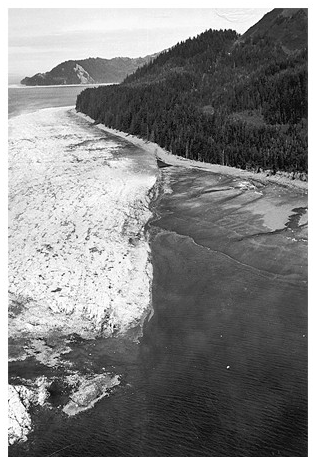This photograph from the 1964 Alaskan earthquake shows a white area of seafloor that was uplifted during the event. What does this observation specifically suggest about how the earthquake might cause damage?

A) Areas on land could be affected by liquefaction.
B) Areas on land could experience landslides.
C) This earthquake could have caused a tsunami because it offset the seafloor.
D) The earthquake could have caused fires because it released sulfur dioxide gas.
C) This earthquake could have caused a tsunami because it offset the seafloor.
You might also like to view...
What soil texture supports the growth best in the majority of plants?
A) loam B) an even mixture of clay, sand, and silt C) silt D) both A and B
The world has enough coal to last more than 400 years at present rates of consumption
Indicate whether the statement is true or false.
Nearshore productivity is almost always more productive than open ocean productivity
Indicate whether the statement is true or false
The concept of biological fitness is based on two separate abilities. These are the ability to
A) survive all environmental resistance factors and reproduce. B) find a mate and have offspring. C) defend against enemies and find food. D) produce and defend a family.